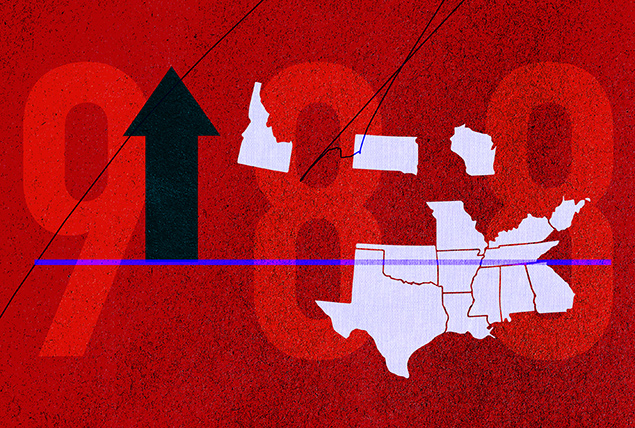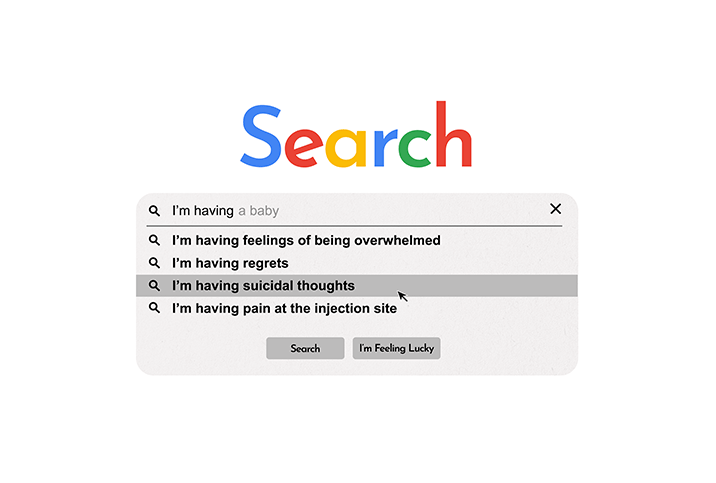Study Suggests Women Die by Suicide More Often in Anti-Abortion States

Anti-abortion states saw a spike in the number of reproductive-age women who died by suicide, new research indicates.
The research highlights a growing mental health concern as suicide is the second-leading cause of death for women ages 20 to 23 and the third-leading cause of death for those in the 25 to 34 age bracket.
Women and girls attempt suicide one and a half to two times more than their male peers, according to the American Foundation for Suicide Prevention.
The fall of Roe v. Wade
In 2022, a team led by researchers from the University of Pennsylvania set out on a quest to find out if state-level legislative anti-abortion policies enacted in the decades after Roe v. Wade passed in 1973 are related to women's suicide rates in the United States.
"Many states in the United States enforce restrictions to reproductive care, with access to abortion remaining a highly divisive issue," the study noted, explaining the importance of this particular line of inquiry. "Denial of abortion is linked with heightened stress and anxiety among reproductive-aged women. However, no studies have tested whether access to reproductive care is linked to suicide."
The team's authors found Targeted Regulation of Abortion Providers (TRAP) laws were enforced in 21 U.S. states between 1974 and 2016. The enforcement of laws restricting access to abortion and reproductive care from 1974 to 2016 is associated with suicide rates among reproductive-age women, but not women of post-reproductive age, the group's study found.
"Restrictions to reproductive care represent a macro-level risk factor for suicide among reproductive-aged women, which may have implications for suicide prevention strategies in this population, particularly as the issue remains at the center of divisive debate in the United States," the study said.
The study found annual rates of death by suicide from 1974 to 2016 ranged from 1.4 to 25.6 per 100,000 women of reproductive age to 2.7 to 33.2 per 100,000 women of post-reproductive age.
In comparison to pre-enforcement years, states with anti-abortion TRAP laws saw a nearly 6 percent increase in the number of deaths by suicide among women of reproductive age.
"Among reproductive-aged women, the weighted average annual state-level suicide death rate when no TRAP laws were enforced was 5.5 per 100,000," the study stated. "Enforcement of a TRAP law was associated with a 5.81 percent higher annual rate of suicide than in pre-enforcement years. Findings remained significant when using alternative, broader indices of reproductive care access and different age categorizations."
The analysis
The team's analysis complements the findings of the Turnaway Study, concluded in 2016, which found "receiving an abortion does not harm the health and well-being of women, but in fact, being denied an abortion results in worse financial, health and family outcomes."
The Penn research team concluded more data is needed to assess the health impacts of abortion restrictions on women.
"Given the limitations of the ecologic design of this study, further research is needed to assess whether current factors affecting access to reproductive care services are related to suicide risk among women of reproductive age and to inform suicide prevention strategies," the authors wrote.
Tyler VanderWeele, Ph.D., an epidemiology professor at the Harvard T.H. Chan School of Public Health, wrote a corresponding editorial about the Penn study.
"The results are of further relevance with the overturning of Roe v. Wade and the resulting increase in abortion-access restrictions in many states," he wrote.
The rise in suicide rates in abortion-restricted states is cause for clinical concern, VanderWeele added.
If you or someone you know is having suicidal thoughts, the 988 Suicide & Crisis Lifeline offers free, confidential 24-hour support to people in distress and their loved ones.


















